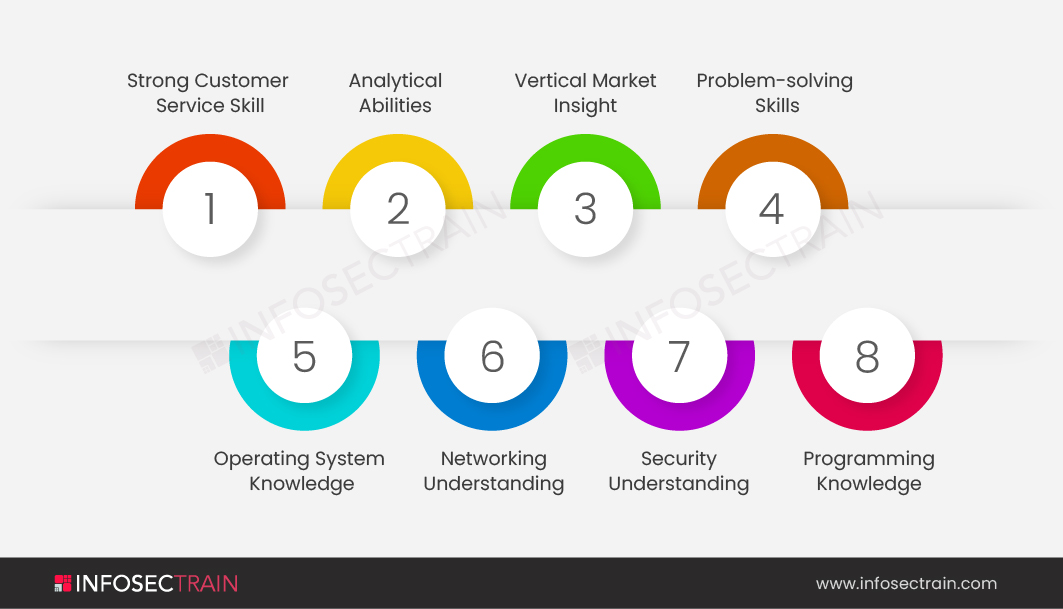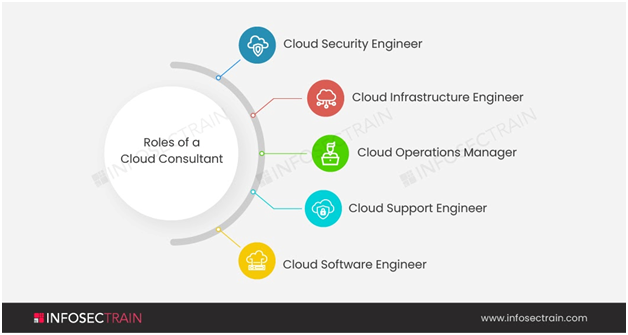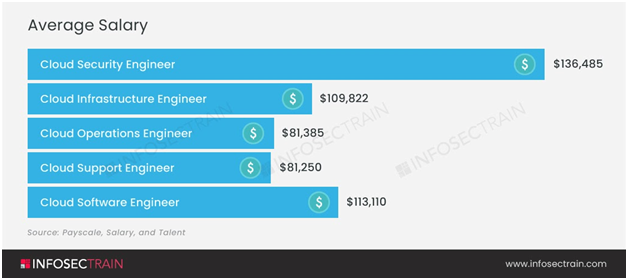Roles and Responsibilities of Cloud Consultant
Cloud Consultant
Cloud consulting is a service provided to organizations by cloud professionals, where they design, implement, migrate, or maintain cloud applications, processes, or computing systems. The job duties often include software installation and hardware configuration as well as customization to fit the requirements of the company.

Who provides Cloud consulting services?
Initially, niche companies dominated the industry, but as large technical service firms and multinational systems integrators have acquired smaller cloud professionals to develop their own cloud consulting practices, the market has become more competitive. Top cloud platform providers such as Amazon Web Services, Microsoft Azure, and Google Cloud, among others, are rolling out a growing number of cloud services. Cloud consultants have expanded their portfolios, for example, by reaching out into Artificial Intelligence and Machine Learning. To make cloud adoption easier, consultants are specializing in vertical markets including financial services and healthcare. As Cloud platforms become more sophisticated, these patterns will continue.
Skills of a Cloud Consultant
Cloud consultants wear several hats, each requiring a unique set of skills. However, if you want to be proficient like Walter White from Breaking Bad, you’ll need a specific set of skills. These skills include:

Roles of a Cloud Consultant
A cloud consultant may select from a variety of positions and functions in cloud computing. You may opt for a core cloud computing role or one of the related roles that will provide you with cloud computing experience. The following are some of the most common roles:

1. Cloud Security Engineer: Cloud Security Engineers, as the name implies, are specialists who provide security for cloud-based digital systems and play a critical role in safeguarding an organization’s data. This might include examining current cloud systems and developing new and improved protection measures. They are frequently part of a broader team that is responsible for cloud management and security.
The job responsibilities are:
- Investigate, create, and recommend innovative and enhanced security measures
- Create cloud-based programs
- Provide better coding methods
- Proffer security recommendations
- Perform threat simulation
2. Cloud Infrastructure Engineer: Clients that need computing resources but do not have access to comprehensive physical computing infrastructure may use cloud infrastructure. Cloud infrastructure is a virtual computing infrastructure that can be accessed through the Internet or a network. Engineers that work on cloud infrastructure design the systems and networks that the computers providing cloud systems need. They could create cloud networks that store data remotely and allow users to access it through the internet.
The job responsibilities are:
- Deciding how to secure data effectively
- Working and accessing the hardware used in cloud systems
- Determining the requirements of an organization
- Recommending best computing technologies and practices
- Evaluate new technologies in order to integrate them with the current systems
3. Cloud Operations Manager: Cloud Operations Managers are experts at developing and deploying cloud-based solutions like SaaS and PaaS. Processes for measuring system effectiveness and identifying areas for improvement can be created by Cloud Operations Managers. They can also develop automated processes that can provide information on current requirements, as well as processes to provide environmental protection.
The job responsibilities are:
- Implement cloud-based solutions
- Offer assistance in app development
- Create and use disaster recovery solutions
- Oversee system monitoring solutions
- Assist in resolving a technical issue
- Create procedures for assessing the efficacy of the system and identifying areas for improvement
- Provide environment security
- Recommend latest solutions for organizational management
- Identify, correct, and enhance important software tools
- Enhance systems operations
4. Cloud Support Engineer: Cloud Support Engineers are in charge of keeping cloud computing systems running smoothly. Their work necessitates a high level of advanced computer programming experience, as well as familiarity with computer hardware. They are in charge of evaluating processes in order to find possible flaws or issues. They figure out that something isn’t working as it should and then take action to fix it.
The job responsibilities are:
- Upgrade software and hardware systems for optimal performance
- Fix system issues
- Recover the lost or compromised data
- Offer technical support to clients
- Improve the security of the existing systems
- Document cloud disaster management plans
- Document encountered problems with fixes
5. Cloud Software Engineer: A Cloud Software Engineer is like a regular software developer but works exclusively with cloud computing systems. They can also be designated as program architects. They use operating systems that run programs that are accessed through the internet, eliminating the need for the machine to store the software. People may also connect to cloud services, which allow them to store data rather than storing it on their own device.
The job responsibilities are:
- Develop programs for cloud systems
- Offer guidance to programmers
- Assist in writing the code
- Look over the development of cloud systems
- Maintain and ensure the efficiency of cloud systems
- Design new systems
- Upgrade old systems

Note: The salary is subject to vary depending on the organization and the experience you hold.
Responsibilities of a Cloud Consultant
Cloud consulting is a service that helps you choose the right cloud technologies that can work together efficiently and provide the best return on your technology investment. Their roles necessitate that they maintain a split focus. Typically, a consultant will assist a customer in selecting a cloud plan. Cloud computing consultants do a variety of tasks, depending on their individual positions, but in general, they do the following:
- Learn the regular responsibilities and analyze client data in order to comprehend and propose the most cost-effective and reliable cloud solution to satisfy the needs of a client
- Implement the cloud infrastructure or customize it to meet the unique expectations of clients
- Create cloud migration policies using cloud services
- Migrate the business’s existing conventional systems to the cloud
- Assist in the designing of high-level architecture for applications by choosing the most suitable platform
- Perform core technical and specialized tasks like moving IBM z/OS workloads to AWS
- Ensure the cloud storage services are used effectively
- Decide which applications or workloads are suitable for running in the cloud rather than on-premises
- Determine the applications or workloads that are best suited for cloud deployment rather than on-premises deployment
- Switch on-premises infrastructure to a cloud network, also known as cloud migration
- Provide managed services to ensure that cloud workloads run smoothly
- Optimize the cost and efficiency of cloud workloads
If you are interested in becoming Cloud Consultant and are not sure where to start from, you can follow our blog ‘How to be Cloud Consultant?’.



 1800-843-7890 (India)
1800-843-7890 (India) 
